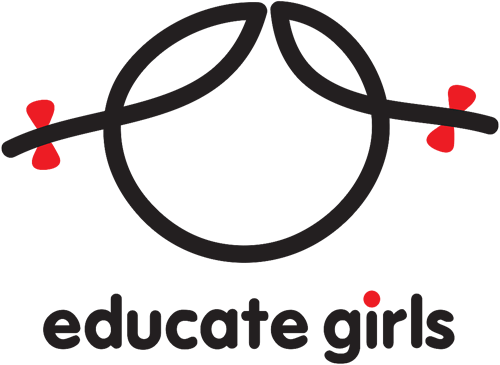“Don’t go to the temple”, “don’t enter the kitchen”, and “don’t let your brothers know that you are on your periods”, “stay outside the house”, “ Periods! Don’t use such words in public”, “oh you have matured now, so you need to stay home and discontinue schooling”.
These are just a few of the words young girls in rural areas have to hear, when they menstruate. Do you think this is fair? Do you think this is right? Do you want to change this?
Menstruation is a biological process which girls go through, as they change from adolescence to womanhood. Unfortunately, it is a topic that has been cloaked in taboo and stigma for centuries, especially in rural areas. In fact, talking about periods itself is considered something shameful and abnormal. In many parts of the world, menstruation is still considered dirty, and girls are often endangered to unhealthy practices and isolation during this time of the month. This condition is particularly grave in rural areas, where access to menstrual products, clean water, and sanitation amenities is inadequate. When you donate to Educate Girls, you are sowing a seed of change – you are offering a chance to girls who have been forced to drop out of school to come back to the classroom.
Here is a glimpse of some of the issues faced by rural girls during menstruation –
Lack of education and awareness
Education and awareness are the most essential tools to break the shackles of unhealthy stigma surrounding menstruation and empower rural girls. Even the mothers, aunts and grannies in the family don’t talk about menstruation to young girls. By donating to Educate Girls, you are giving girls a chance to come to school, where they will earn an education and not fall prey to such superstitions. We see so many girls come to school, while they are menstruating and when they see other girls in similar situations, it offers them confidence as well as an understanding that there is nothing wrong with them!
Inadequate access to hygienic and safe menstrual products
Access to menstrual products, such as a basic sanitary pad, is a big challenge for rural girls. In many places, sanitary pads are not readily available, and girls have to rely on alternatives such as old rags. These makeshift solutions are not only ineffective, but also highly unhygienic and can cause deadly infections and many health issues. Lack of access to safe menstrual products also means that girls are forced to stay home without attending school or be a part of social activities during their periods. All these things can have long standing consequences regarding their education and social development.
Lack of access to clean water and sanitation facilities
In small villages, availability of clean water and sanitation facilities is one of the most crucial challenges, and without these things, periods are even more troubling! Rural girls often have to walk long distances to get water or use unhygienic facilities, which can increase the risk of infections and other health issues. Another issue is the lack of privacy, which can also lead to feelings of shame and embarrassment, further worsening the stigma surrounding the monthly menace.
Social stigma and discrimination
In rural areas, never do the girls talk about periods to your own near and dear ones, or even discuss the issue they are facing when in periods. Periods are still a taboo in many rural communities, and girls often face discrimination and isolation during their periods. Some cultures even believe that menstruating girls are impure and need to be kept away from the house and make them stay in a separate menstrual hut during their periods. The already physically suffering girls are subjected to mental pressures, which can have long-term consequences for their self-esteem and mental health.
Suggestions to overcome the existing taboo of menstruation
Menstruation is a natural biological process that every single girl in the world experiences, yet it continues to be a taboo in many cultures – why can’t we talk about periods, when it is a normal thing???
The shame and stigma around menstruation can have a very bad impact on girls’ physical and mental health, and it limits their access to education and opportunities. It is high time we break the silence and start talking about menstruation openly and without any shame or embarrassment. Here are some suggestions for overcoming the existing taboo of menstruation:
Educate, empower and enlighten!
One of the most effective ways to overcome the taboo of menstruation is through education and awareness. And by education and awareness, we don’t just mean for the girls, but for boys as well. Educate Girls volunteers might not be tasked with offering education or information about menstruation, but most of them play the role of older sisters, which means that they will be willing to talk about the same and offer basic information.
Celebrating menstruation, promoting positive attitudes!
Women and young girls need to be empowered to talk about menstruation openly and without any shame – normalize periods, period! By enabling access to menstrual products, clean water, and sanitation facilities, women and girls can manage their periods with dignity and respect. Additionally, providing education and training on menstrual hygiene management can help women and girls understand how to stay healthy during their periods, and stop treating it as a disease. By getting an opportunity to come back to school, girls will not only earn an education, but also understand about sources, from where they can get information that is pertinent to them.
Challenging the stigma, overcoming cultural barriers!
Social stigma, baseless norms and unnecessary rules around menstruation need to be challenged. Women don’t have to be made to feel humiliated or embarrassed about their periods, and men should not be left out from discussions about menstruation. Shattering the gender barriers and challenging the orthodox beliefs about menstruation will help create a more open and accepting culture.
Building menstrual hygiene infrastructure.
Menstrual health needs to be given a lot of attention and importance. By making menstrual health care services available to girls in the rural areas, such as screening for gynecological disorders, hormonal issues, and infectious diseases, they will be able to better manage their periods and stay healthy.
Menstruation is a natural and normal part of life, and it’s time to break the taboo that surrounds it. Through proper education, true empowerment, and strongly challenging orthodox social norms, we can create a world where menstruation is talked about openly and without shame. Together, we can create a better place for these girls, where they receive uninterrupted education, better social exposure and loads of fun, even during their periods! Don’t you wish this kind of a world for these little girls?
Then come join hands with us at Educate Girls!

